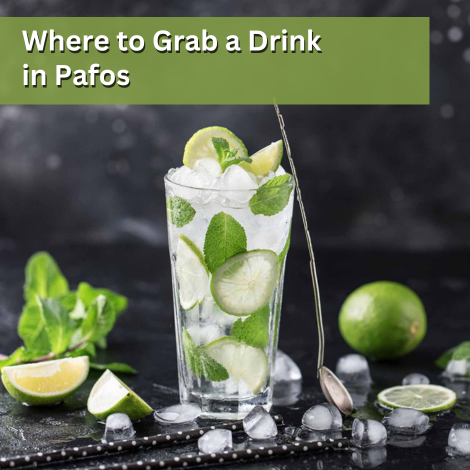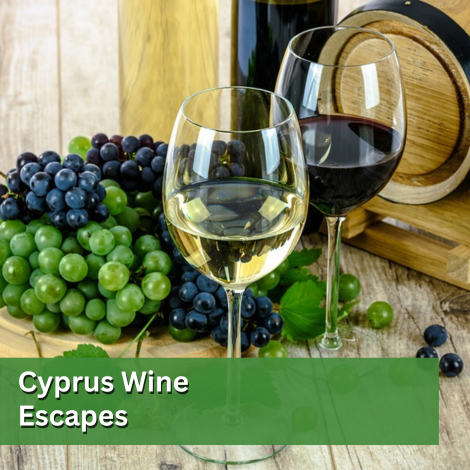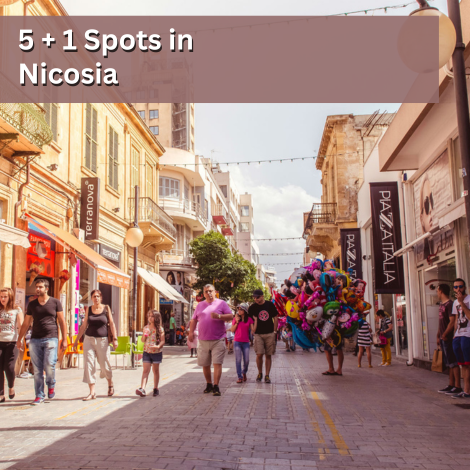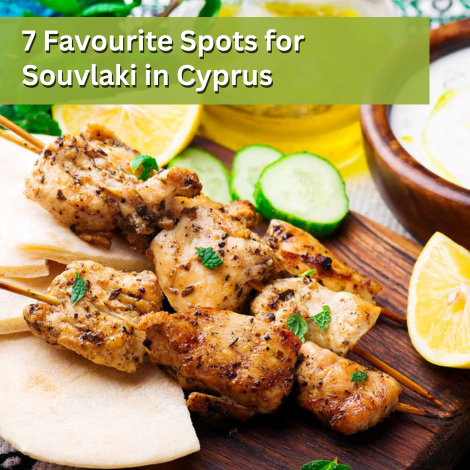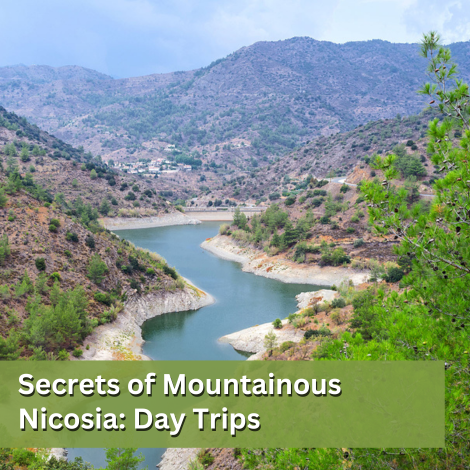Christmas in Cyprus
What's different?
Most years my children and I get together for Christmas in some part of Europe. A few years ago we decided not to do any Christmas travelling and I sat with some friends outside the Baker’s Arms in Ayia Triada, sipping white wine as an aperitif, while waiting for Christmas Lunch to be served indoors at about 4pm. Nothing unusual in that, you might say – except that we were in shirtsleeves, outdoors, on Christmas Day. It gets nippy quite quickly when the sun goes down at about 4.30 pm, but until then we can usually bask in sunshine of around 22C or more.
Some of today’s traditions may seem pretty similar to English ones. With the English colonisation of Cyprus between 1925 and 1960, English practises like decorating Christmas Trees gradually became adopted. However, Cyprus is perhaps one of the few countries in the Western world where the orgy of commercialisation and excesses has not taken hold. As outlined in my previous article, the time before Christmas is a time for moderation not excess and of looking forward to the time of festivity and celebration where one can enjoy the festive foods all the more for having held back beforehand.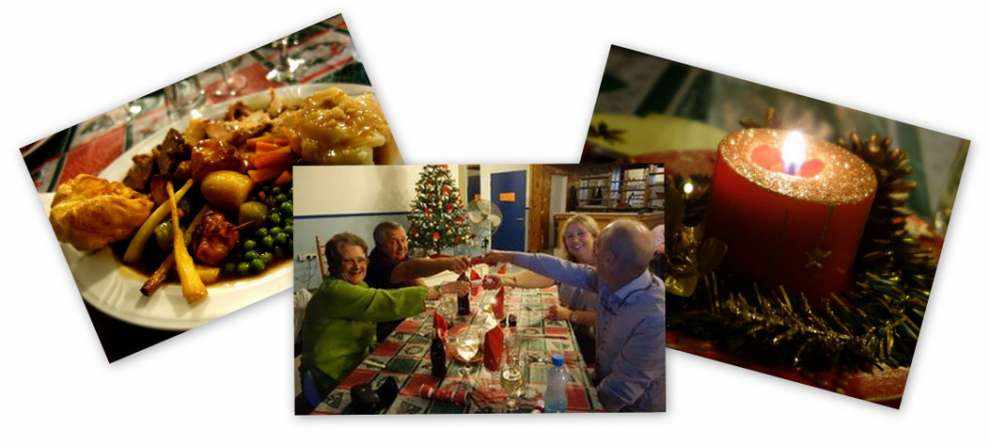 With the English influence, Christmas Turkeys have come into vogue but the real traditional Christmas meal is Roast Pork, “Hoiromeri”.
With the English influence, Christmas Turkeys have come into vogue but the real traditional Christmas meal is Roast Pork, “Hoiromeri”.
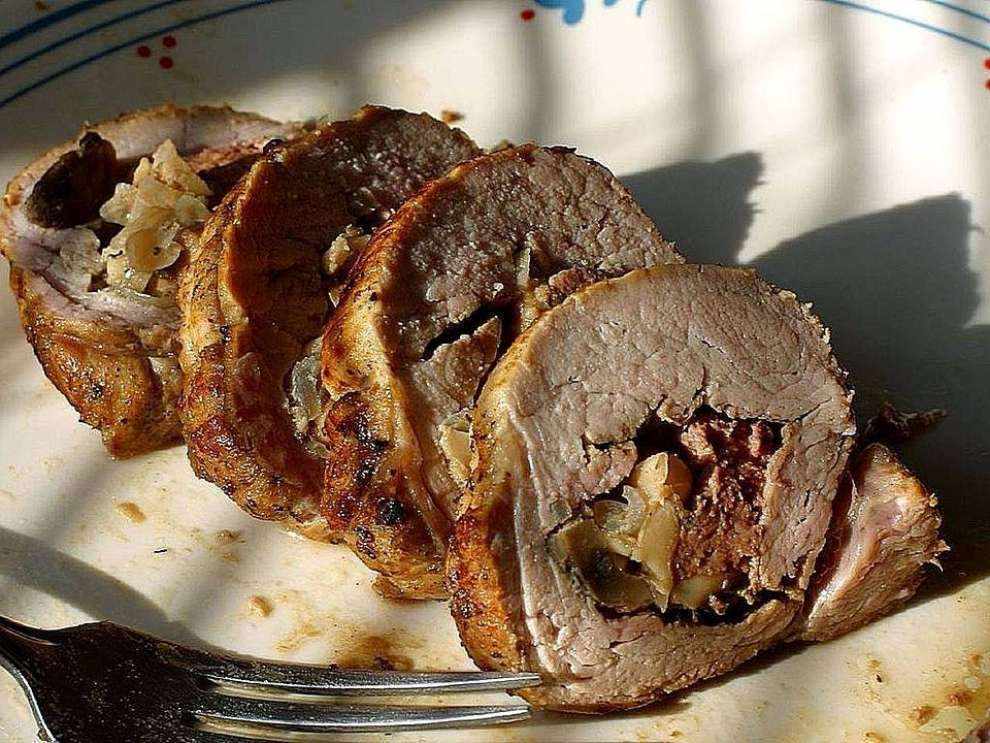
Another major difference is that whilst Christmas is a day for Celebration with abundant eating and drinking after the Christmas fasting period, the traditional day for presents is January 1st, St Basil’s day. St Basil (Agios Vasilis) goes a long way back – long before Coca Cola made Artist Thomas Nast’s image of Santa Clause into a legendary figure in 1931.
As it happens, Santa Claus evolved from another fourth century Greek Bishop of Asia Minor, also famed for helping the poor – St Nicholas of Myra.

Agios Vasilis lived also in the fourth century AD, became Bishop of Caesaria (the one in Asia Minor not the one on Israel) in 370 AD and was famous for helping the poor. He died on the 1st of January 379 AD. A legend has it that at one time a powerful prefect came and ordered St Basil to get his people to hand over all their personal treasure. St Basil told the prefect that the people were poor and did not have treasures to give. This enraged the prefect who said he would kill St Basil. The people, wanting to protect their Bishop brought together all the wealth they could muster. Before St Basil, well Bishop Basil at the time, could give the prefect the treasures, the latter’s army had set upon the people. As they were about to be slaughtered, St Mercourios miraculously showed up with an army and forced the evil prefect to withdraw.
Agios Vasilis then had the problem of returning the treasures to the people. As it was impossible to know who had given what, he had hundreds of cakes baked and put a gold coin in each one then gave everyone a cake. And that according to the legend is how the tradition of putting a coin in Vasilopita came about. In Greece and Cyprus St Basil’s day is the big cake day. A coin is traditionally included in the baking mix of a Vasilopita in the same way that the old sixpence used to be put in Christmas puddings. It is the main cake and plays an important role in the celebrations. A hand-written recipe book of my grandmother had no less than three recipes for Vasilopita. However, as well as this big cake, throughout the Christmas period lots of little cakes or sweetmeats are also made - like Kourabiedes and Melomakarona to give to the many visiting guests that will pass by at this time of year. If you would like to make your own Kourabiedes, Giannis shows us how. He has now also written an article on preparing Melomakarona.

Christmas and St Basil’s day in Cyprus are gift days largely for children. Because of the English influence in present-giving on Christmas day, children often get two bites at the cherry. They’ll often have presents on Christmas day and another lot on New Year’s day from Agios Vasilis. Greeks care deeply for children and want to see them enjoying the festival. There are even specific charities to ensure that children in the poorest of families can share in a child’s magical excitement of Christmas.
Now some words for the adults. Although it can be pretty warm at Christmas during the daytime if you live down by the sea, it gets pretty chilly once the sun goes down. And if you live in the mountains it is chilly – period. Snow is even a strong possibility. What nicer than some hot mulled wine to warm the cockles of your heart? Now that’s not a traditional Cyprus drink, but all the ingredients are readily available here and you might like to try making some. The spices will be found in practically every Greek kitchen: Cinnamon sticks, cloves bay leaves. Organic honey is easily found and we have an abundance of citrus fruit.
Here’s what you need:
- A bottle of full-bodied red wine such as a Shiraz. Constantinou and Vlassides make a very suitable one, so do Fikardos or you might go for a Lefkada Cabernet from Tsalapatis or the Shiraz Grenache blend from Ais Ambelis. Cyprus has a host of suitable wines and I don’t think it is a good idea to go for a cheap wine just because one is going to warm it up. Still, if a cheap wine is what you want, plenty are available – even in cartons from Keo.
- 3 tablespoonfuls of brandy. The sweetish Metaxa from Greece is very suitable, athough as a brandy I prefer Keo’s Five Kings which is dryer.
- 2 tablespoons of runny honey.
- 2 cinnamon sticks.
- 8 cloves.
- 2 bay leaves.
- Lemon zest from half a lemon.
- A little ground nutmeg, fresh gratings if possible.
- An orange sliced in rounds.
To prepare, put all the ingredients (except the orange) into a saucepan. Bring to the boil, then turn heat down to minimum and simmer for half an hour. Serve with an orange slice as garnish.
As a little postscript to this article, I would mention that my name is linked to both Father Christmas figures. My first name is William of which the diminutive is Bill. This is after my English grandfather. Bill and John have succeeded each other for many generations in the Warry family. The name Bill does not exist as a Greek name and Greeks often call me Vasili. Hence if I turned up at a Greek restaurant on New Year’s day when I lived in London, the owners would say, “Happy name day Vasili (Well they’d actually say ‘Hronia Polla Vasili’ but a literal translation into English is strange). Let us buy you a drink.” January the 1st is, as we said Agios Vasilis day. My second name is Nicolas after my Greek uncle Nikolakis, and since there is no St Bill, December 6th is my official Greek name day – that of St Nicolas, the other Saint whose help to the poor made him evolve into a Father Christmas figure. So whichever way you look at it, East or West, I have a connection to Father Christmas.

Read Christina's article for more on Christmas in Cyprus

 English
English
 Ελληνικά
Ελληνικά Русский
Русский










 Posted by
Bill Warry
Posted by
Bill Warry

